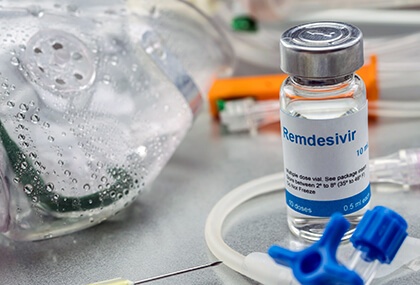This final report published in NEJM about the efficacy of remdesivir against COVID-19 infection vs placebo showed its superiority though only in soft end points, which does not seem to modify the course of this pandemic.

Multiple drugs initially promising have been shown ineffective against the new virus. The case of hydroxychloroquine resulted paradigmatic: not only was it ineffective, but also damaging.
No antiviral agent had shown any promise so far.
The ACTT-1 was a double-blind study, randomized and placebo controlled that tested intravenous remdesivir in adults hospitalized for COVID-19 with evidence of respiratory compromise.
Randomization consisted of a 200 mg load of remdesivir on day 1, followed by 100 mg/day for 9 days vs. placebo for 10 days. Primary end point was time to recovery defined by hospital discharge.
Read also: Conscious Versus General Anesthesia in TAVR.
It included 1062 patients (541 receiving Remdesivir vs 521 receiving placebo).
Those in the remdesivir arm had a 10 day mean recovery time vs. 15 days in the placebo group (p<0.001).
In the different risk categories, clinical recovery was faster with remdesivir. Morality was 6.7% with remdesivir vs 11.9% at 15 days and 11.4% vs 15.2% at 29 days, respectively.
Read also: Asymptomatic Severe Aortic Stenosis, When Should We Intervene?
Adverse events were reported in 24.6% of patients receiving remdesivir vs 31.6% of the placebo group. This speaks of drug safety.
Conclusion
Remdesivir is superior to placebo in shortening recovery in patients hospitalized for COVID-19 with respiratory compromise.
Original Title: Remdesivir for the Treatment of Covid-19 — Final Report. The ACTT-1 Study Group.
Reference: J.H. Beigel et al. N Engl J Med. 2020 Oct 8;NEJMoa2007764. doi: 10.1056/NEJMoa2007764.
Subscribe to our weekly newsletter
Get the latest scientific articles on interventional cardiology





